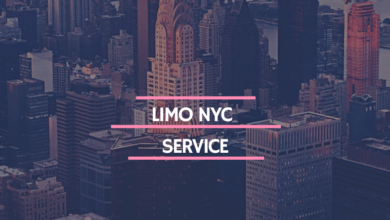WICA Insurance protect your employees?


According to Singapore’s Work Injury Compensation Act (WICA), employers are legally liable to pay compensation to workers who become injured or sick while performing work activities. For example, You must pay your employees medical fees and their wages while they are on medical leave if they fall at work and break an ankle. If your worker contracts an job related disease (e.g. lungs infection by inhaling dust while at work), you are also responsible for their medical expenses. It is essential to have insurance in place to cover your employees’ medical expenses given the high cost of healthcare in Singapore.
WICA Insurance is also called “Workman Compensation Insurance”. One of the most popular insurance policies that SMEs buy is WICA coverage. It typically offers generous coverage while being quite economical. Given that your most expensive assets are frequently your staff, we strongly advise this sort of insurance for all companies.
What’s included under WICA Insurance coverage?
Workplace Injury Insurance A wide range of expenses are covered by insurance, including:
a. Medical costs associated with an employee’s work-related illnesses or injuries, including Covid-19
b. Up to one year’s worth of lost pay while the employee is on MC as a result of accidents or illnesses at work
c. A lump sum payment of up to $289,000 for an employee’s temporary or permanent impairment that results from their employment
d. A lump sum payment of up to $225,000 in the event of an employee’s death at work
WICA Insurance primarily protects employers from having to legally compensate workers’ compensation claims for injuries sustained while on the job, as required by MOM laws.
What are some cases of workplace injuries?
Let’s say you own a interior renovation firm. One of your renovation crew members breaks his arm when he falls from a height while working on a client’s project. The injured worker must get arm plastic surgery. In addition to receiving regular wound dressing changes, he takes medicines. His total medical fee add up to $25,000. The worker is also provided with sufferer medical leave for 2 weeks.
Let’s look at what the above scenario would be covered by a work injury compensation insurance policy.
Surgery on fractured arm: The reason behind the injury was work-related, WICA Insurance would cover the surgery costs to treat your employee’s injured arm.
Hospitalization bills: The hospitalization costs would be covered by work injury compensation insurance. The insurance plan would pay the $25,000 total cost of medical expenses associated with this workplace accident.
Lost wages while on MC: Since the employee was on medical care for 3 weeks in total (1 week in the hospital, 2 weeks at home), Work Injury Compensation Insurance would also cover the employee’s salary because he was on medical leave. Your work injury coverage would cover $2,250 in lost employee wages if he made $3,000 per month.
In the preceding scenario, if you didn’t have work injury compensation insurance, you would be required by law to pay $27,250 through your own pocket! For most businesses, that is a very heavy financial burden. It is strongly advised that you protect your staff with this policy due to Singapore’s strict injury compensation rules. If one of your employees is hurt or becomes ill while at work, it might save you a lot of money!
Do I require insurance for workers’ compensation? Is it required by law?
In Singapore, it is a legal requirement to provide WICA insurance for:
a. All manual laborers, regardless of their level of pay
b. All employees, regardless of job scope, who make $2,600 or less per month
You shouldn’t just get WICA Insurance for the employees you are legally required to cover. It is far better to cover every member of your team because companies are responsible for paying benefits for all work-related illnesses and injuries. If you simply insure a portion of your workforce and leave the rest uncovered, you run the risk of charging a significant medical expense should any uninsured employees get sick or injured on the job.
If your business or your employees are working in the following, then this type of insurance is particularly important for you:
- Labor-intensive industries: Construction companies, interior designers, manufacturers, warehouse/storage companies, restaurants and bars, shops, etc.
- Frequent exposure to outdoor environments: engineers, technicians, transportation of supplies, construction of roads, painting of buildings, towing of vehicles, car washing, etc. on-site.
- High-hazard industries: Building scaffolding, working in shipyards, working with aircraft, working at petrochemical or oil sites, working in tunnels, etc.
- Offshore work: Fishing, employment on offshore rigs, and any type of shipboard work.


How much coverage do I need for Work Injury Compensation Insurance?
A typical amount of coverage is included in most WICA insurance policies:
| Letter | Description | Amount |
|---|---|---|
| a | Annual Common Law Limit | $10 million |
| b | Sub-limit for Medical Expenses | $45,000 |
| c | Lump Sum Compensation for Death or Disability | $289,000 |
| d | Coverage for Lost Wages on Medical Leave (Work-related) | 30 days |
You’ll see that the criteria listed above are the bare minimums that employers are required by law to offer their employees. Legally, employers are not required to offer more comprehensive coverage. However, certain WICA Insurance policies will offer greater coverage – of course, at a larger cost.
All manual laborers, regardless of their level of payIt is strongly advised that SMEs obtain WICA insurance for each and every one of their employees. A single WICA claim alone could cost an employer tens of thousands of dollars.
Benefits for Employers
By providing WICA insurance, employers fulfill their legal obligations under the Ministry of Manpower’s (MOM) regulations in Singapore. Employers who fail to comply with WICA insurance requirements may face penalties or legal consequences.
Cost Management:
While accidents and injuries cannot be completely avoided, WICA insurance aids in cost management for employers. By transferring the financial burden of compensation to the insurers, employers can focus on their core business operations without significant disruptions caused by medical bills or claims.
Employee Retention and Loyalty:
Offering comprehensive insurance coverage demonstrates an employer’s commitment to the well-being and safety of their employees. This increases overall retention rates, improves job satisfaction, and develops employee loyalty. This may then result in a better working environment and increased output.
Culture of safety within the workplace.
Employers are more likely to prioritize and put into place practical safety measures to prevent accidents and injuries if they invest in comprehensive insurance coverage. This not only safeguards workers, but also lessens the possibility of workplace mishaps that could interrupt business and result in losses. Employers may establish a safer workplace where workers feel valued, protected, and inspired to give their best work by prioritizing employee safety through WICA insurance. This in turn may support increased output, decreased absenteeism, and a generally happy workplace environment.
Promote quicker recovery and rehabilitation for employees.
The timely support provided by WICA insurance can significantly contribute to the overall well-being and recovery of employees, enabling them to resume their normal lives and work duties with confidence. This, in turn, benefits both the employees and the organization as a whole.
Conclusion
WICA insurance is essential to protecting employees and assisting in their recovery from work-related illnesses or accidents in a world where employee safety is of utmost importance. Employees receive financial and medical support, assuring their wellbeing, while employers gain from legal compliance, cost control, and increased employee loyalty.
Employers must be knowledgeable with WICA insurance requirements and make appropriate insurance coverage choices for their businesses. When you put your employees’ safety and security first, you establish a supportive environment that promotes their well-being, job satisfaction, and productivity.




